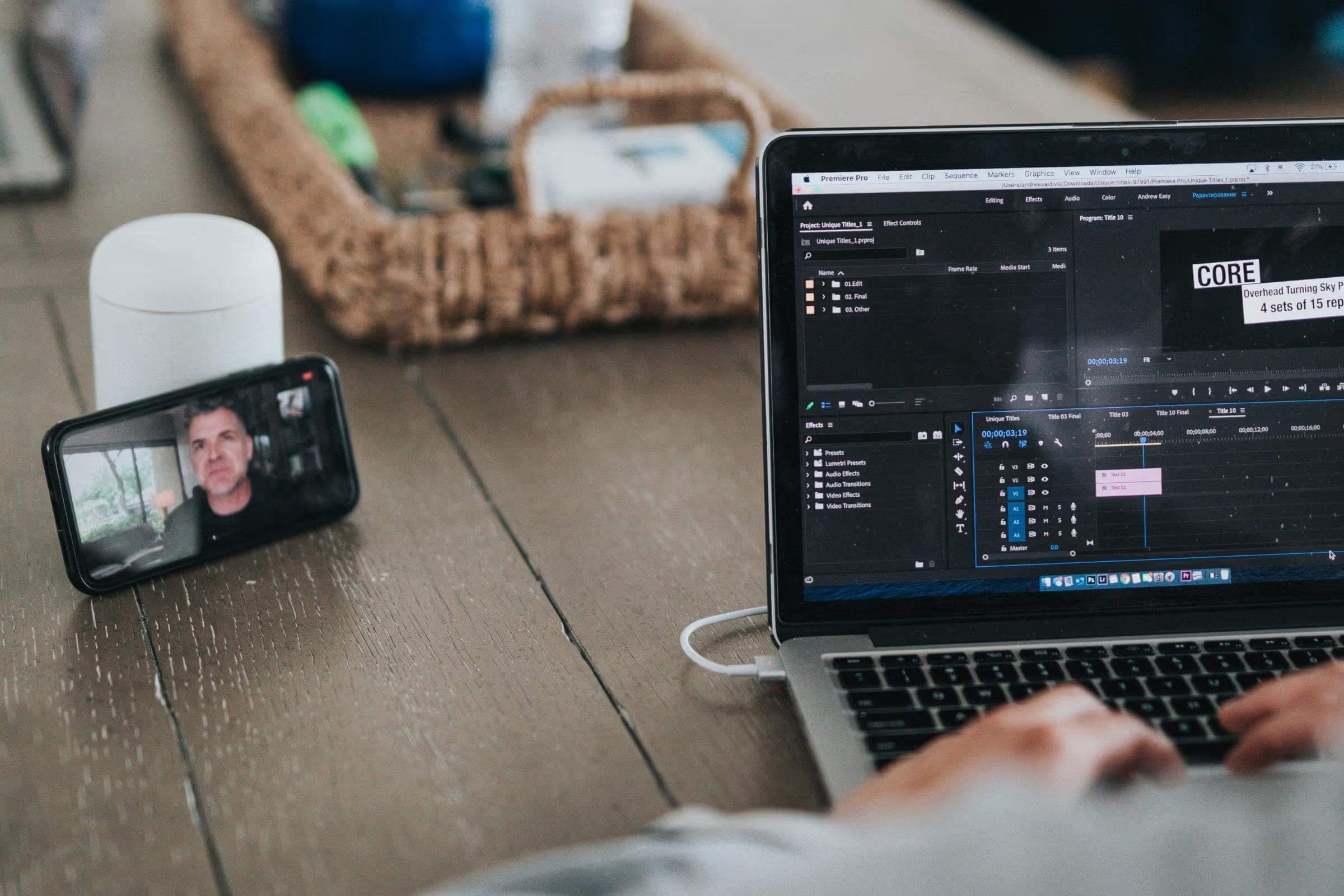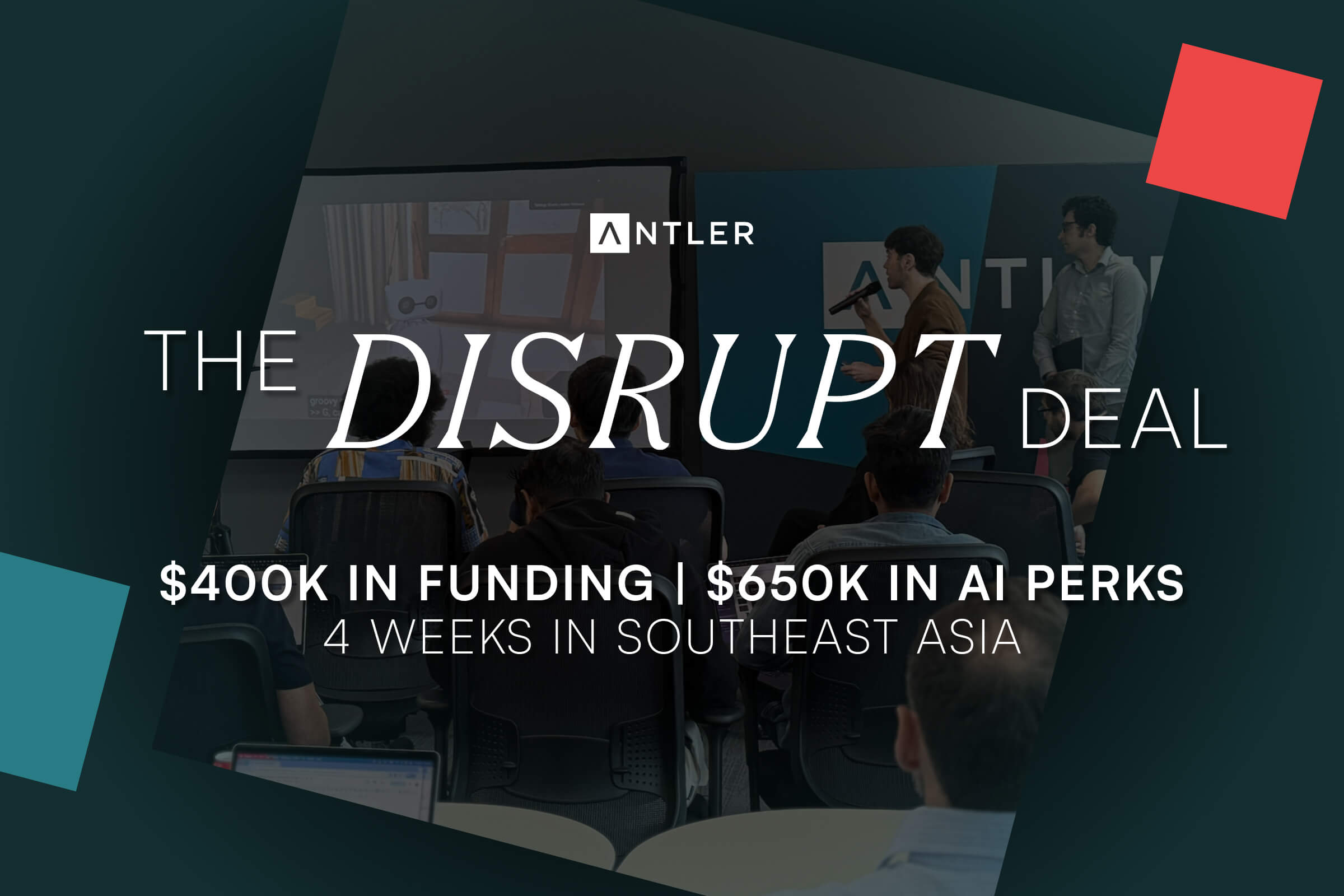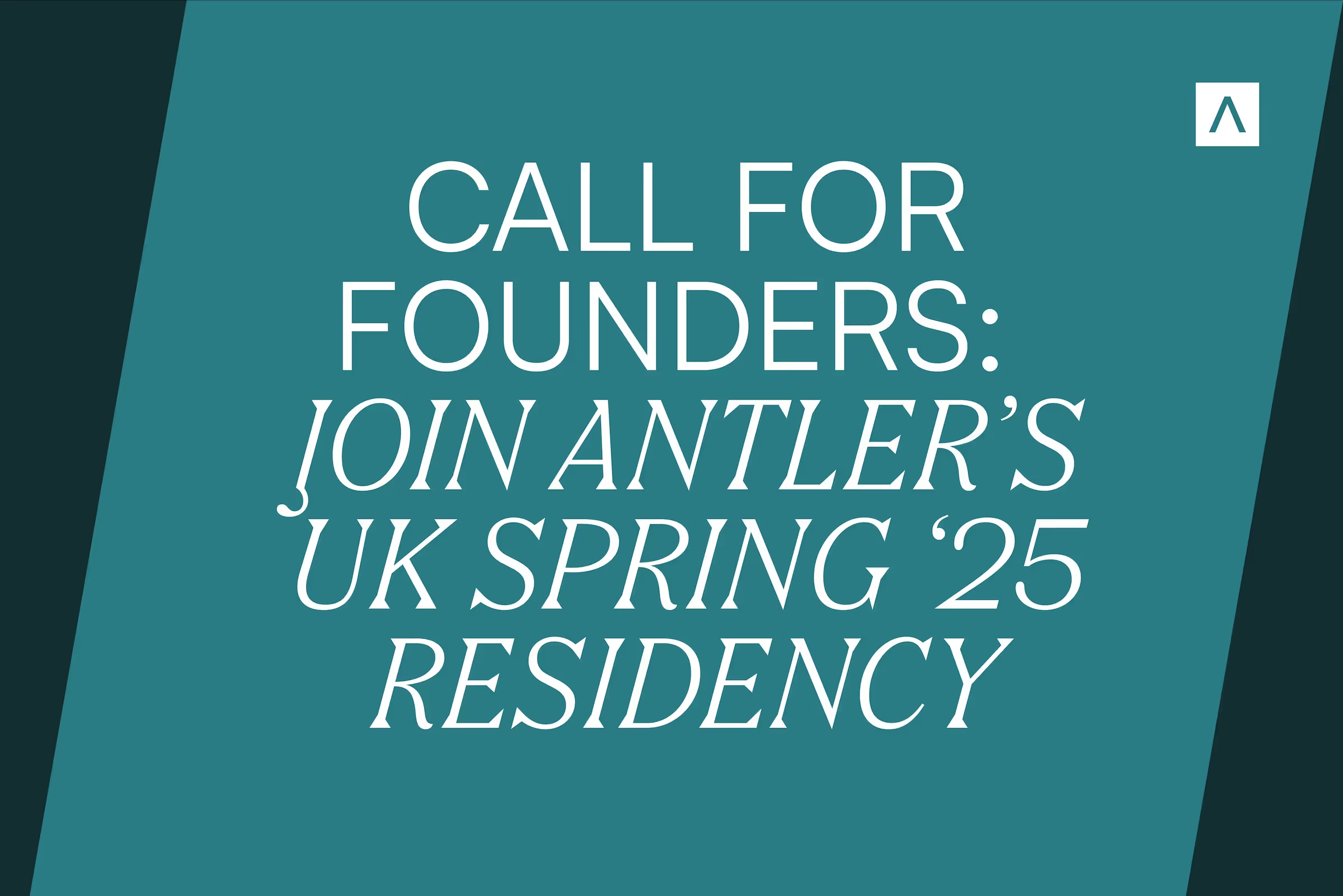Having secured pre-seed funding (some even their seed round), brought on advisors, made first hires and built MVPs, these businesses have been able to adapt and pivot as required with the restrictions and policies put in place in response to the virus.
We spoke to the founders of these businesses to find out what they learned from the experience. Here's what they had to say:
Alexander Millar, co-founder of Hudled
Starting a startup is a crazy leap of faith, and doing so during a global pandemic is outright lunacy. This experience with Antler however has completely reshaped how I see the future of work.
My co-founder Santiago and I had only met twice before going into lockdown. We took a leap of faith and threw the traditional founder "dating process" out the window. We were forced to build a relationship in a different way, putting our communication and work styles to the test.
Three key learnings I took from starting a company during covid-19 are:
1. Building a cofounder relationship remotely is different but very attainable. It requires you to communicate differently and trust the other person faster. If you aren't in sync, it will show quickly but it also refines how you communicate.
2. Leverage global networks to access talent. Santiago and I were forced to think about this from day one. When you can't interview face to face, you think about things differently. When you're impartial to location, your budget and access to talent goes much further.
3. I'm all in on virtual meetings. What you lose in personal connection, you gain in effectiveness. Relationships don't have to be built face to face. Investors, customers and potential hires are willing to make decisions through online interactions. This isn't mutually exclusive, meet where possible but it opens up so many new channels for business.
This creates an amazing precedent for the future and shows the exciting possibilities for how teams will be built in the future.
Michael Tan, co-founder of Elenta
I think this is bad.
That's actually two concepts. One is a fact, the "this". The other is a perception - "it's bad".
I've learned to focus on facts.
We recently launched Elenta.io, a SaaS platform that helps Learning and Development (L&D) professionals maximise the business impact of organisational learning.
When Covid-19 hit, people told us discretionary spend on L&D would start to dry up. We've validated this with over 50 L&D professionals and it's true. A fact.
But here's a few other facts we uncovered.
1. There are currently thousands of L&D providers all over the world with time on their hands, who are actively looking to improve their offering.
2. There is massive demand for L&D in certain areas, from remote work and wellness to collaboration and leadership development.
3. Pressure is building on internal teams to prove the business impact of their learning investments.
Elenta.io is uniquely positioned to capitalise. By embedding learning into the flow of work and quantifying the impact, we offer both external consultants and internal teams the tools to thrive during this pandemic.
We're launching pilots with leading corporates such as Bupa and we're inundated with inbound requests from boutique consultants who now need Elenta.
I think that's great.
If you'd like to chat, contact me at michael@elenta.io.
Sarah Neill, co-founder of Mys Tyler
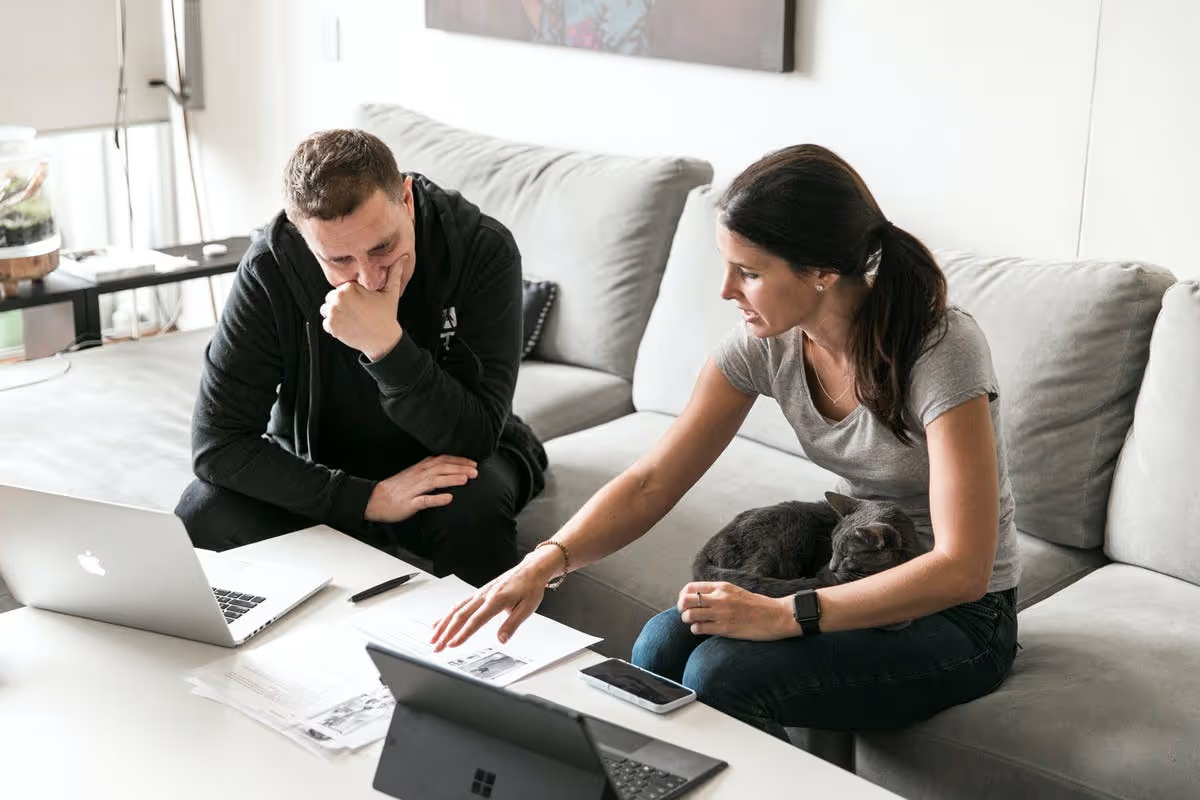
Firstly, I'm really glad we didn't proceed with the "meet in real life" dating app idea.
This pandemic has turned the world upside down. During this time, we've learned that when starting a business:
Some things get easier:
1. You don't have to spend time commuting
2. It's easy to spend less (no fomo from opting out of social outings due to your ramen noodle budget)
3. Amazing talent becomes available (unfortunately, but fortunately)
4. Competitive threat decreases (businesses focus on core vs innovation)
5. Marketing is more affordable
Other things get harder:
1. Networking and developing relationships
2. Collaborating with your team
3. Keeping mental health in check during a challenging time (building a business) when you're distanced from friends and fitness, and the world is suffering
4. Fundraising is more difficult as investors prioritize support their portfolio through an uncertain time
Our business, Mys Tyler, is fashion-tech, an industry that has been materially (no pun intended) impacted by coronavirus. Annual sales are projected to be down 40%, brick and mortar has been closed, women have less need for fabulous outfits when in the comfort of their own homes. But while the industry is in crisis, we are focused on how we can be part of the solution, and become more relevant than before.
Carl Prins, co-founder of PathZero
We were right in the throes of pitching the importance of SME's going carbon neutral to Antler when our lives suddenly ground to a halt.
Kudos to Antler that they looked beyond the crisis and financed Pathzero, however we now faced the challenge of gaining traction during a pandemic!
Here are some practical things we've learned:
1. You can still get a lot done
When everyone accepts that doing zoom calls from your home is acceptable, it opens up opportunities. Not only is the pre-call 'chit chat' pre-defined (no need to talk about the weekend), but you now have a shared pain and the camaraderie between silent sufferers helps create a collaborative atmosphere.
2. Marketing is cheap(er)
As the uncertainty of Covid-19 kicked in a lot of companies pulled back their discretionary marketing spend. This meant the cost of 'keywords' on Google came down significantly. It created the opportunity to get in front of new prospects for less money!
3. Sales are expensive
To survive, sensible companies will always cut back expenses in a pandemic. Unless you were one of the companies for whom this was boom times (like Zoom), any expense that is not an absolute 'must have' is cut from the budget. This is not a fruitful time to close new deals... The silver lining is that people have time on their hands, so there is the opportunity to acquire users, if not customers.
Nathan Olivieri, co-founder of RightPaw
Starting a business in a pandemic means all your previous assumptions need to be re-assessed, to see if they still hold water. Some aspects will inevitably change, but for RightPaw it was about trying to respond to the new market dynamics that have opened up. It has created a huge opportunity to solve really painful problems. Necessity is the mother of innovation, after all.
We learned to look for opportunities amidst the crisis. For RightPaw, COVID-19 has seen an influx in demand for puppies, but sadly a rise in online scams. It meant the need for a trusted online marketplace was even more urgent, and we've been accelerating our efforts to build greater fraud protection and identity verification into our site.
We've pushed ourselves to think of more creative ways to innovate and pivot, particularly when it comes to virtual ways to verify breeders. In-person site checks are very difficult right now, so looking at ways to conduct this thoroughly online, and at scale, would be a huge unlock.
We've forced ourselves to be frugal, to ensure we have enough runway. We're saving at every point we can, and developing strategies to make the best use of our limited resources, to allow us to stay nimble. It's a balance of focusing on business building and traction, whilst also being single-minded around cash management.
But perhaps most importantly, we always remind ourselves to have compassion. Everyone is doing it tough at the moment, and dealing with this in their own way; so remember you're speaking to people, not just "clients" or "consumers".
Michael Wendland, co-founder of Intalayer
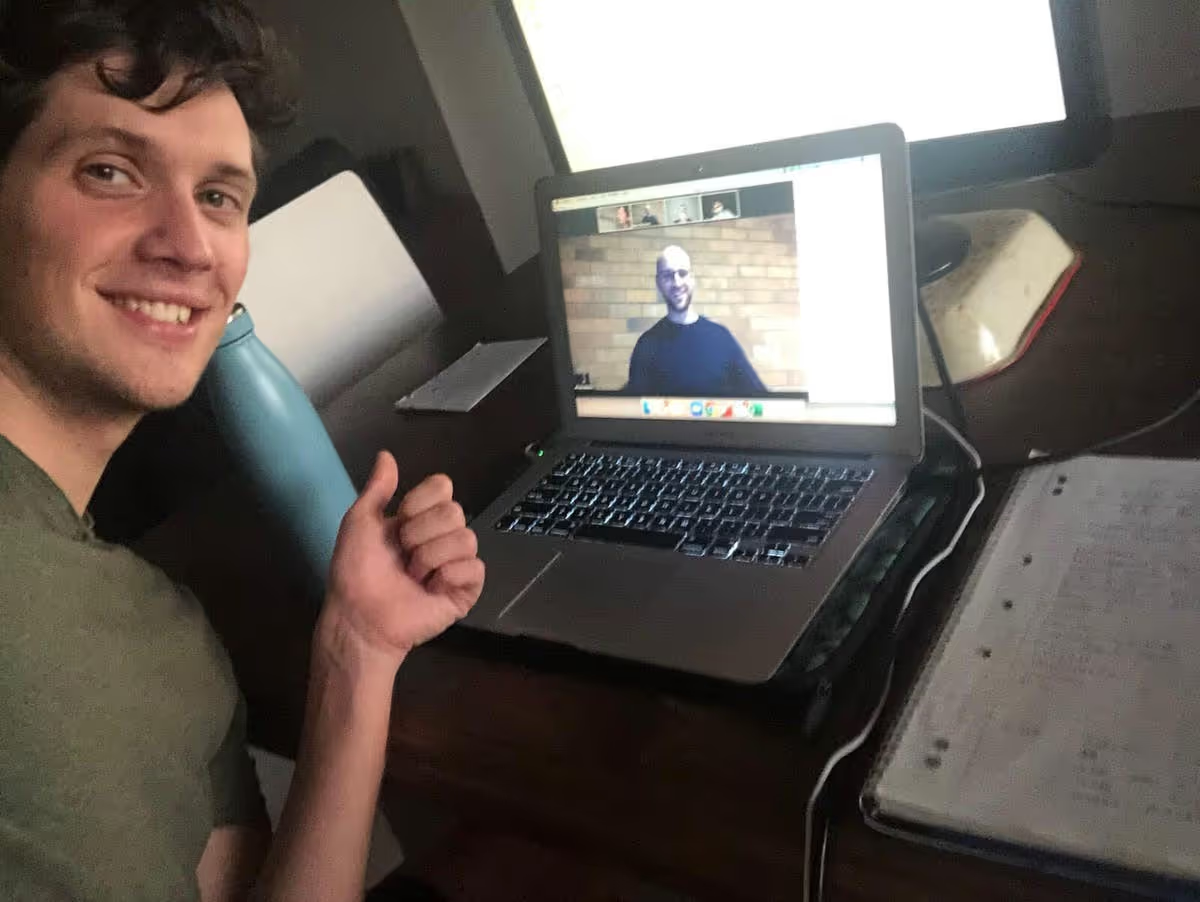
Michael Wendland, co-founder of Intalayer
Beginning a startup story with "I started a business in a pandemic" sounds like either:
1. The prologue of an underdog success story
2. The set up for an excuse
My co-founders Dain, Ian and I are committed to option 1.
We have recently launched Intalayer, a platform that helps customer support and product teams in software companies to cut weekly time spent on bug management from hours to minutes.
The past three months have taught us a lot about our team and our market.
Our team
Despite the fact that I can't remember how tall my co-founders are, building our team culture entirely remotely has been incredibly valuable. We are based in Sydney (NSW), Armidale (NSW) and Hamilton (NZ) but it doesn't feel that way. The obstacles and distance have strengthened our attention and commitment to understanding each other, our lives and how we work.
Our market
Covid-19 is accelerating digital transformation across the whole economy. Software companies are experiencing a surge in demand, and increased pressures on customer support and product teams are magnifying inefficiencies and failures in support processes. Companies without effective processes have been exposed. This means that the pains Intalayer is solving are becoming more intense and our market is growing.
Now is the perfect time for Intalayer. We have our first customers and are onboarding additional scaling SaaS companies into our private beta.
If you'd like to learn more about Intalayer and joining our private beta, contact me at michael@intalayer.com
Sally Krebs, co-founder of Aurelius
What a magical time to sit back and reflect on how simple life can be, for the team at Aurelius it has meant less noise so we can focus on executing on wild ideas that perhaps for some, always seemed prickly to touch, even when the economy wasn't in this weird and wacky place.
While not everyone is thriving and quite a few talented people are being politely ousted, they might be re-examining what they really want out of life. And there is reason to be optimistic.
Like Aurelius, there will be many innovative companies spawned from this coronavirus pandemic. Just like Uber, Slack, WhatsApp, and Instagram were created coming out of the last recession, there will also be a realisation that we need to start planning for these events and think differently about our approach to traditional models of working, especially Healthcare.
COVID-19 proved that the "Internet of You" can support a new era of health. We call it "healthcare with no address", where sophisticated support for chronic diseases can be delivered to people at home.
As futurist Vinod Khosla observed, it would take an infinite amount of money to provide traditional hospital support to every person on the globe. Instead, it must be done with digital health. High cost, low care options for people simply wanting to get better is no longer acceptable and when a pandemic hits we also now know, there's no room for them. We are building for people struggling with an addiction and will be there with them, every step.
Alan Gibbons, co-founder of Yolo ex
The "go big or go home" mentality necessary to light a fuse on a true zero to one venture backed startup has pivoted to "go big but stay home."
Three learnings have stood out for the Yolo ex team:
1. Startups are hard, stressful yet extraordinarily rewarding. We are privileged with both geography and opportunity to be here in Sydney working on startups we are passionate about. Any difficulties pale in comparison to the stress of navigating a pandemic with a young family & loved ones overseas which in turn pale in comparison to the stresses experienced by those on the frontline whose lives have been permanently altered by Covid-19.
2. Humans are extraordinarily adaptable. "The only constant in life is change"
3. Talent is equally distributed, opportunity is not. This has been a core tenet of ours from day zero. A post Covid more remote working friendly environment will hopefully go a long way to bringing opportunity to a more fairly distributed global talent base.
Catherine Long, co-founder of Trace

It's never the perfect time to take a big risk like starting a business, but during a global pandemic certainly feels less than ideal.
That said, we wouldn't have it any other way. We have loved the journey so far and learned more in 10 weeks than our entire careers. What's been amazing is how small the world feels when you can connect to anyone online. Through video calls and online events we've started to build a global community of customers, partners, investors and advisors. And we've done it for free - $0 spent on travel and $0 spent on coffees!
We have learned to adapt and be resourceful with our limited funds to extend our runway. We have hired four interns, built our product using no code solutions and found clever ways to promote Trace for free.
But probably the most important learning for us has been the value of a strong co-founding team. It's thanks to each other that we've weathered this storm, had fun along the way and feel confident that we can get through future highs and lows together.
Paul Boudet, co-founder of Meetric
Startups were hit either positively or negatively during the pandemic. As we are building a product to make remote meetings more efficient, we were one of the lucky ones and received additional attention from users, customers and investors.
We also discovered that working remotely is not a barrier to starting a business. In fact, with tools like Slack for chat, Tandem for conferencing and Notion for knowledge sharing and task tracking, it was an easy transition from collaborating every day in the same office to work from our respective homes. The pandemic also removed distraction and improved focus: There is nothing going on, so what better opportunity to bunker down and focus on building our product.
Another benefit of building a 'remote-first' company during a pandemic is that it leads to higher-quality processes. All of our important decisions and data are accurately recorded and organised, and we follow a schedule that carefully balances working time, information-sharing, and decision-making.
One challenge was social interaction. As co-founders, we barely knew each other and were forced to work from home almost overnight which removed all the organic ad-hoc social interactions from being in the same office. We had to make an extra effort in having 'social' Zoom calls to improve our interpersonal relationships.
Finally, like everyone working from home, it was important to be mindful of our mental health. 'Work-time' used to be defined as the ~8 hours per day in the office. Now, it can easily bleed past midnight every day if we aren't careful - we had to set our own boundaries on knowing when to stop working and spend time with our families.
Alexander Green, co-founder of motiveOS
In the last downturn, my biggest takeaway from running a small consultancy was how much relationships with stakeholders mattered, and in our current pandemic economy, this will be no different. A maniacal focus on our customers, our product and employing incredible people, particularly whilst we search for product market fit will be critical to our success. We will of course have to reevaluate our approach constantly with the winds of change, but already we've learned:
1. Some industries are suffering: Whilst some industries like travel and hospitality are suffering, others in logistics, remote working, education and wholesale are outperforming. It's sad to see the downturn affecting some industries more than others, but as a result we've had to rapidly adjust the types of ideal businesses we approach, (both permanently and temporary).
2. Early stage fundraising is drying up: Much of the early stage investment money is disappearing in Australia. It's hard to know what the economy will look like in the next 6 to 12 months. We decided it was important to secure additional funds now, to ensure we have enough runway to become cash flow positive and support our future customers.
3. Remote working... works: I've always been a cynic when it came to full remote work, but what I've come to realise is the habits of remote companies are the habits of great companies. Whether we're fully remote or not in future, this period has taught me how to be more effective with my time, a better communicator, and ultimately a better member of our team.
Running a startup relies heavily on our ability to adapt, Covid-19 is no different, Linton and I are both optimists, you have to be to start a business with the chips stacked so high against us. We welcome the challenge.
Adam Ross, co-founder of CloudOlive
Firstly, the volatility and uncertainty that is happening across the globe right now will create the next wave of modern and influential companies. There are so many bright people having a crack at being an entrepreneur mixed with thousands of people being laid off many of whom will go out on their own. I'm sure that in 3-5 years time, Covid-19 will be seen as the catalyst behind so many forward looking opportunities.
Secondly, being a founder at this time has made me take check on what's important. Both from a personal spending perspective as well where I invest my time. It's amazing how much time/expense can be reallocated into smarter, more impactful areas.
Finally, CloudOlive works with IT companies that resell software and remotely support the IT for millions of Aussie businesses. We ensure that every license that is being resold is actually accounted for and then automate the entire provisioning, adoption reporting and billing reconciliation process. As companies look to reign in wasted time and cash, the next 24 months will require as much accuracy and automation as possible.
These 12 businesses will be pitching at the upcoming virtual Antler Demo Demo live streamed from Sydney. Register to watch the pitches here, and tune in on June 25.




